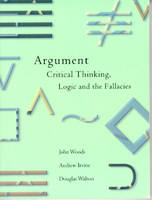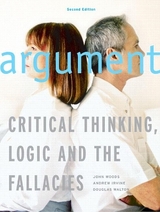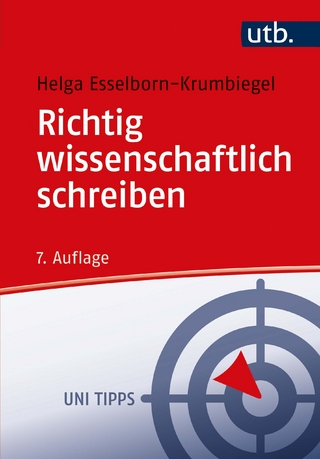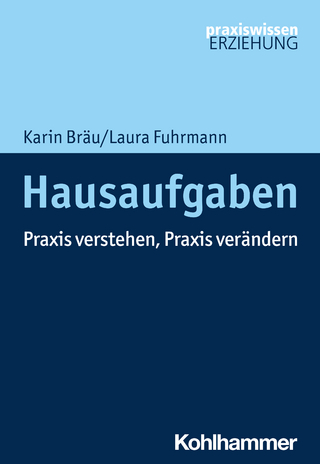
Argument
Prentice-Hall (Canada) (Verlag)
978-0-13-085115-4 (ISBN)
- Titel erscheint in neuer Auflage
- Artikel merken
I. ARGUMENTS. 1. The Quarrel. Arguments, Fallacies, Logic, and Argument. The Quarrel. The Ad Baculum Arguments. The Ad Hominem Arguments. Summary. 2. The Debate. The Debate. Mill's Model of Debate. A Critique of Mill's Model. The Ad Populum: Boosterism. The Ad Populum: Popularity. Appeals to Misery and other Emotive Fallacies. Summary. 3. Dialectic. Aristotle's Basic Rules of Dialectic. Eight Revised Rules of Dialectic. The Fallacy of Appealing to Ignorance. The Fallacy of Complex Question. Summary. II. LOGIC. 4. Deductive Logic. Entailment. Conjunction, Disjunction, and Negation. Conditionals and Biconditionals. Testing Arguments for Validity. The Truth-Table Test for Validity. Fallacies of Relevance. Summary. 5. Formal and Informal Logic. Logical Form. Formal Logic. Equivocation and Amphiboly. The Paradox of the Liar. Summary. 6. Formal Deductive Systems. Formal Systems. System P. Working in System P. Evaluating System P.Summary. 7. Extending Deductive Logic: I. Systems RP. Evaluating System RP. Modal Logics. Epistemic and Decontic Logics. Multi-valued Logics. Summary. 8. Extending Deductive Logic: II. Aristotle's Categorical Propositions. Immediate Inference. The Syllogism. Predicate Logic. Summary. 9. Inductive Logic. Induction and Fallibility. The Elements of Probability Theory. Hasty Generalization and Related Fallacies. A Casual Fallacy. Summary. III. APPLYING LOGIC TO ARGUMENTS. 10. Arguing in a Circle. The Fallacy of Begging the Question or Arguing in a Circle. Sextus' Puzzle. De Morgan's Defence. Summary. 11. Arguments from Authority. Five Conditions Governing from Authority. A Case Study. Towards a Model of Argument in Question. Inconsistency. Plausibility Screening. Plausible Argument. Summary. 12. Economic Reasoning. The Fallacies of Composition and Division. Analytical Remarks about Composition and Division. Economic Reasoning, Dialectic, and Decision Theory. Expected Utility, Sure-Thing, and Minimax Principles. Group Decisions and the Prisoner's Dilemma. Summary. 13. Legal Reasoning. Burden of Proof versus Standards of Proof. Evidence and Expert Opinion. Legal Precedent and Analogical Argument. Legal Facts and Legal Justification. Summary. 14. Artificial Intelligence. Artificial Intelligence, Logic, and Computability. Expert Systems. Theories of Belief Revision. Can Machines Think? Summary. 15. Issues in Argument Theory and the Philosophy of Logic. Choosing the Right Logic. Paraconsistent Logics. The Enlightenment Ideal. Summary. Selected Readings. Subject Index. Name Index.
| Erscheint lt. Verlag | 6.8.2002 |
|---|---|
| Verlagsort | Scarborough |
| Sprache | englisch |
| Gewicht | 1000 g |
| Themenwelt | Sozialwissenschaften ► Pädagogik |
| ISBN-10 | 0-13-085115-9 / 0130851159 |
| ISBN-13 | 978-0-13-085115-4 / 9780130851154 |
| Zustand | Neuware |
| Haben Sie eine Frage zum Produkt? |
aus dem Bereich



